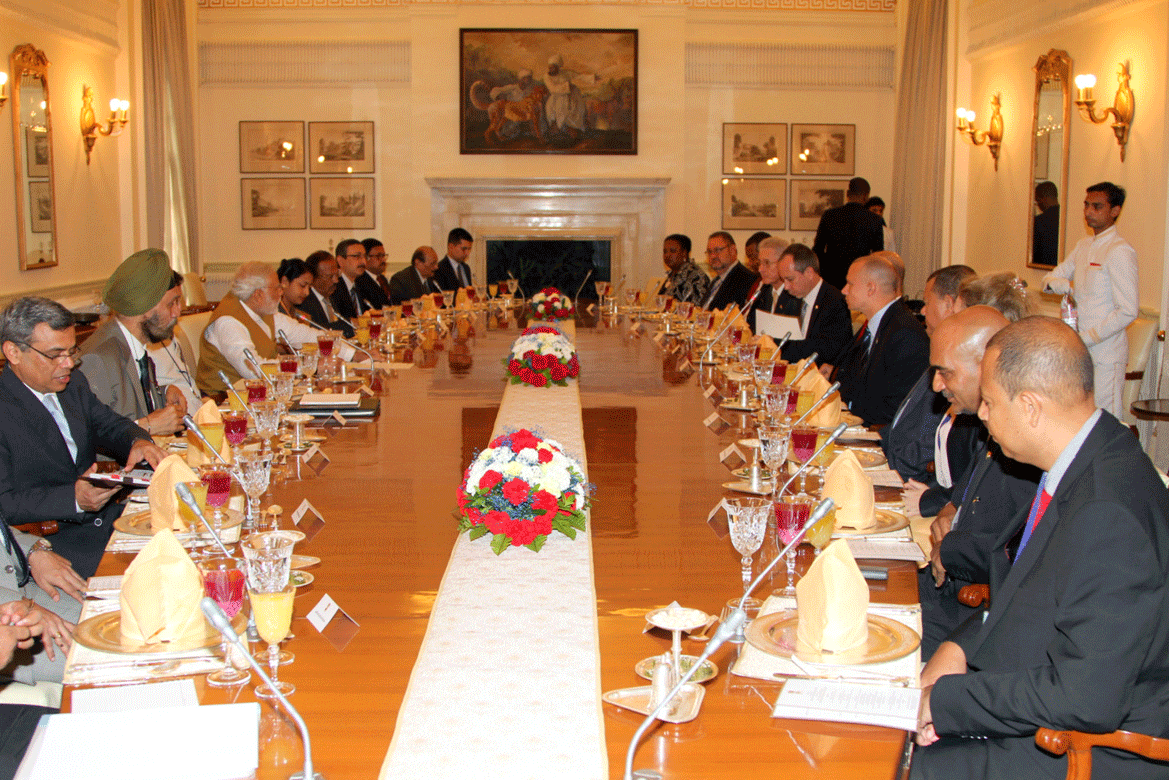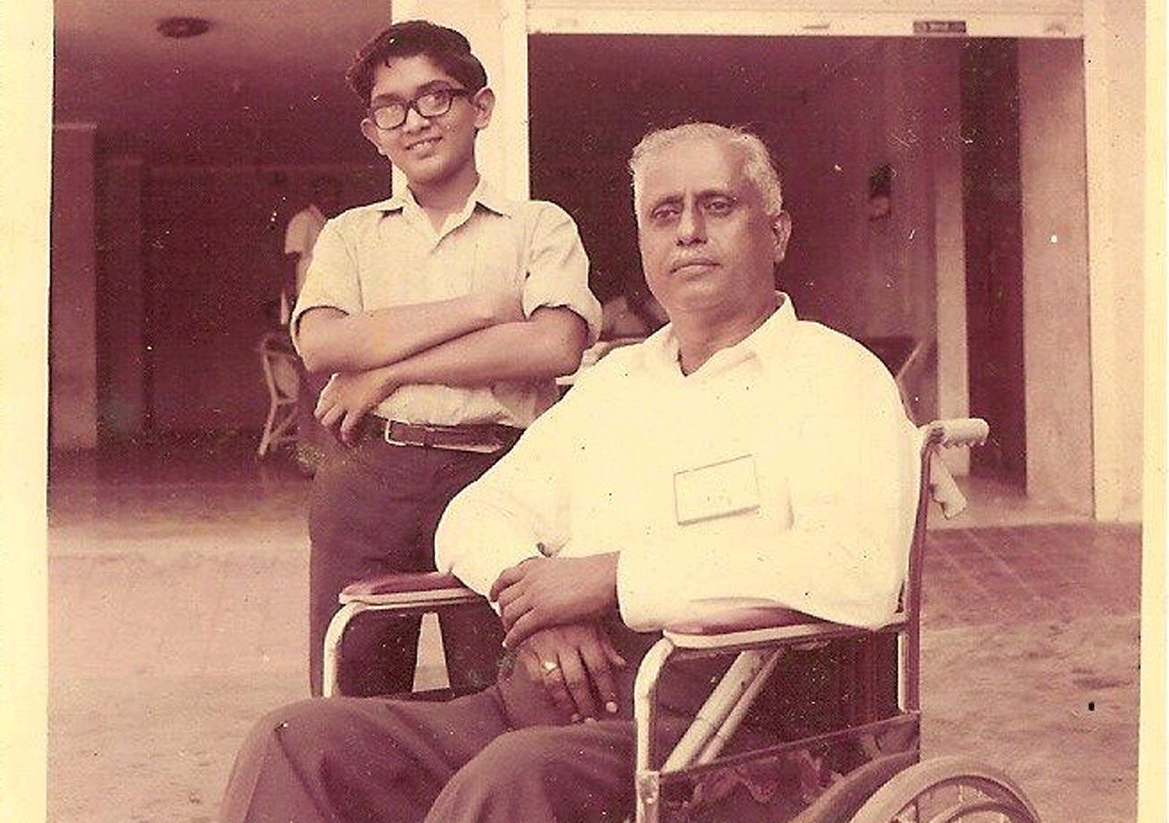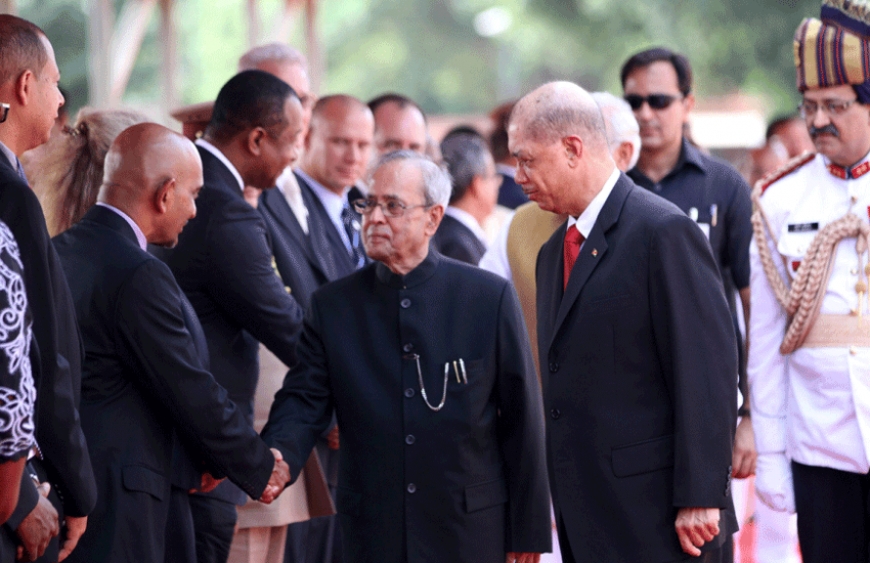Shah said that the President’s State Visit, which included ministers Joel Morgan and Jean Paul Adam has stirred much interest in the Indian marine and scientific fraternity. Seychelles has always played an important part of India’s geopolitical strategy in the Indian Ocean. But it is only after Mr. Michel’s various visits to India and the historic reciprocal visit by Mr. Modi to Seychelles that our country is being increasingly seen in key Indian circles as the lead Indian Ocean island state in terms of environmental protection, climate change adaptation and the Blue Economy. The President himself said that the Blue Economy is not possible without India in his address to the Indian Council of World Affairs at its headquarters in Delhi.
 Five agreements were signed between Seychelles and India during the state visit
Five agreements were signed between Seychelles and India during the state visit
At this meeting Mr. Joel Morgan, Seychelles’ Minister for Foreign Affairs and Transport and Mr. Jean Paul Adam, Minister for Finance, Trade and the Blue Economy, deftly answered questions from the erudite audience. Mr. Adam highlighted Nature Seychelles’ coral farming and reef restoration project as a case to be made for Seychelles’ innovative approach towards the Blue Economy and pointed out Shah’s presence on the delegation as an example of the deep contribution of Seychellois of Indian origin to Seychelles’ progress in various fields.
India has already conducted very valuable hydrographic surveys in Seychelles’ waters. Shah says that India is possibly the nation with the most amount of research conducted on the Indian Ocean and the largest data bases on the coastal, marine and atmospheric environments of this Ocean. India has many research institutions that could assist Seychelles and advanced infrastructure and equipment like earth satellites and state of the art research vessels capable of undertaking any kind of studies and research relevant to Seychelles.
 Nirmal Shah (L) and Prof Jones (R), founder of the Marine Biological Association of Indian at the first Indian Ocean marine science symposium in 1971
Nirmal Shah (L) and Prof Jones (R), founder of the Marine Biological Association of Indian at the first Indian Ocean marine science symposium in 1971
Shah, whose family settled in Seychelles from Gujarat, India in 1890, is himself no stranger to India. In the 1970’s he studied business and economics at Bombay University. But much earlier than that, he achieved an extraordinary feat when, at the age of 13, he was the youngest delegate at the first “Symposium on the Indian Ocean and Adjacent Seas—their origin science and resources” at Cochin, India in January 1971 which he attended with his father Kantilal Jivan Shah who presented a paper there. The Symposium had been organized by the Marine Biological Association of India and the young budding scientist had the unique opportunity to interact with the 275 researchers gathered including the founder of the Association and ringmaster of the Symposium the legendary Professor S. Jones.
Shah says that during the working lunch on Wednesday 26th August between Prime Minister Modi and President Michel and their respective delegations Mr. Modi surprisingly offered Indian “space science” for the benefit of Seychelles. Mr. Modi’s elaboration of this offer included advance warning systems for tsunami, monsoon changes and flooding, and monitoring of floods, forest fires coastal changes and oceanographic shifts. Mr. Michel took up this generous. India has thousands of kilometers of tropical coasts and hundreds of islands like the Lacadives and the Andaman and Nicobar groups that possess coral reefs and marine resources similar to Seychelles.
“What we have in common is much more than what separates us and that includes this great Ocean that is our common front yard. The Indian Ocean is not what separates us it is what binds us” says Shah. “As regards real outcomes Nature Seychelles wants to collaborate with Indian institutions on any aspect to do with marine research and development of the Blue Economy,” Shah concludes.

